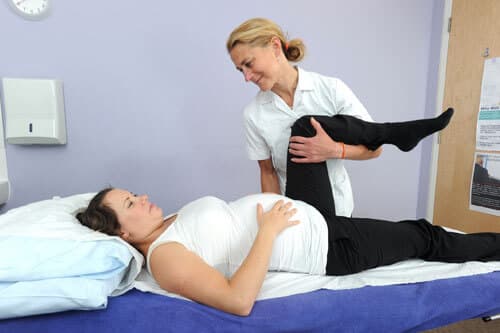 Osteopathy and pregnancy
Osteopathy and pregnancy
Osteopaths spend four to five years training to understand the relationship between the body's organs, joints and muscles. Given the unique stresses pregnancy puts upon the body, osteopaths are well suited to diagnosing and helping you with some of the problems you may experience when you're expecting.
Every patient's problems are unique, and your treatment will be specific to your symptoms. Osteopaths use a wide range of hands-on techniques. These will vary depending on your age, fitness and diagnosis, but will focus on body tension, stretching muscles and mobilising your joints. You may wish to discuss with your osteopath how many treatments are likely to be necessary, and how frequently you may feel you would benefit from osteopathic treatment. Some new mothers like to return for follow-up osteopathic treatment after being discharged by their obstetrician or midwife. A number of osteopaths are also trained to assess babies - check in advance if you would like to make an appointment for your child.
It's quite normal to get some discomfort during and directly after a pregnancy, and whilst usually nothing serious, it's natural to worry about what might be causing your symptoms. Your osteopath will discuss any concerns you have as part of your examination and will advise you on any further action that might be required.
Common pregnancy complaints
Many pregnant women experience back or pelvic pain. Common symptoms may include:
- generalised muscular back pain
- symphysis pubis dysfunction - pain or discomfort in the joint at the front of the pelvis
- sacroiliac Joint pain - occurring in the lower back
- sciatica and leg pain associated with back pain
- rib and thoracic spinal problems leading to breathlessness and difficulty in deep breathing
- neck aches and headaches
Many commonly used medications for these symptoms are often not recommended for a pregnant or breastfeeding mother. Osteopathy offers an alternative approach to help you deal with these common conditions.